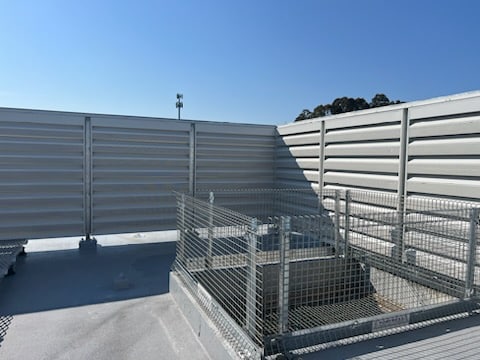The link between noise control and soldier health
Understanding the effects of excess noise on military personnel When considering the factors that contribute to soldier health and wellbeing, noise control may not immediately come to mind. Yet recent studies have revealed an unexpected connection between noise exposure and the overall health and performance of military personnel. Noise control is now emerging as a…
Understanding the effects of excess noise on military personnel
When considering the factors that contribute to soldier health and wellbeing, noise control may not immediately come to mind. Yet recent studies have revealed an unexpected connection between noise exposure and the overall health and performance of military personnel. Noise control is now emerging as a critical aspect of maintaining our soldiers’ physical and mental wellbeing.
In military environments, noise is an omnipresent and often underestimated hazard. From the deafening roars of aircraft engines to the constant barrage of gunfire, soldiers are consistently exposed to high levels of noise that can profoundly affect their health. Shockingly, it’s estimated that military personnel are twice as likely to experience hearing loss as the general population.
The impact of excess noise on ADF personnel
The immediate impact of excessive noise on soldiers is evident in the form of hearing loss and tinnitus, which can be debilitating and long-lasting. However, the consequences of noise exposure extend far beyond auditory damage.
Research has shown that persistent exposure to loud noises can lead to various physical and mental health issues:
Poor mental health
One of the most alarming effects of noise on soldier health is its impact on mental wellbeing. Prolonged exposure to high noise levels has been linked to higher rates of anxiety, depression, and post-traumatic stress disorder (PTSD) among military personnel. The constant stress and disruption caused by noise can exacerbate the demanding and high-pressure nature of military service, heightening the risk of mental health disorders.
Impaired physical health
The negative effects of noise can also extend to soldiers’ physical health. Sleep deprivation, a common consequence of excessive noise, can impair immune function and increase susceptibility to illnesses and infections. A lack of quality sleep can also hinder the recovery process for soldiers injured in the line of duty, prolonging their rehabilitation and delaying their return to active service.
What noise control solutions can be used in the military?
Recognising the significance of noise control in maintaining soldier health, the military has implemented various measures to mitigate noise exposure. Advanced technologies – such as improved sound insulation in vehicles, aircraft, and Personal Protective Equipment – have been developed to reduce noise levels and minimise the risk to military personnel. Additionally, guidelines and training programs have been implemented to educate soldiers on hearing protection and proper noise management techniques.
Beyond the military, the findings on the impact of noise control have implications for society at large. Many occupations outside of the military, including construction workers, factory employees, and emergency service personnel, are exposed to high levels of noise daily. Understanding the potential health risks associated with noise exposure can inform occupational safety regulations and promote the implementation of effective noise control measures across industries.
Products that have shown promise in reducing the noise impact on our soldiers include:
These products have been utilised in Australian Defence Force bases as a proven way to mitigate noise-related risks for our defence personnel.
Talk to Flexshield about noise control solutions for the ADF
The surprising link between noise control and soldier health underscores the need for increased awareness and action, to protect military personnel from the detrimental effects of excessive noise exposure. By prioritising noise reduction strategies and providing adequate hearing protection, we can safeguard our soldiers’ wellbeing, and improve their overall health, performance, and quality of life.
The lessons learned from our military can also be applied to other professions, ensuring a healthier and safer environment for workers across various industries. Let us not underestimate the power of silence in promoting the health and welfare of those who serve and protect us.
Contact us today on 1300 799 969 or get in touch online for more information about our noise control solutions and how we can help you protect the hearing health of defence force personnel.
Related Stories
-

Managing noise in large-scale projects with acoustic solutions
Strategies for improving industrial workspaces through noise control In industrial environments, noise control is a critical factor due to the substantial noise produced by machinery and operations. Effective noise control solutions are instrumental in ensuring… -

4 Positive Impacts of Industrial Noise Control
How compliance with Australian regulations benefits your business In today’s rapidly evolving industrial landscape, businesses must prioritise the health, safety, and productivity of their workforce. An often underestimated factor in achieving these goals is effective… -

Enhancing military communication: the crucial role of noise control
3 ways the ADF can benefit from addressing excessive noise Effective communication is the backbone of successful military operations. In fact, clear and uninterrupted transmission of critical information can be the difference between mission success…